Why Eid is Special: Traditions and Customs
Why Eid is Special: Traditions and Customs
Eid, a significant and joyous occasion in the Islamic calendar, is celebrated by millions of Muslims around the world. It is a time for coming together, practicing gratitude, and embracing various cultural traditions. This article will delve into the reasons why Eid is special by exploring its rich traditions and customs.
Understanding Eid
Eid is celebrated twice a year: Eid al-Fitr marks the end of Ramadan, the holy month of fasting, while Eid al-Adha commemorates the willingness of Prophet Ibrahim (Abraham) to sacrifice his son as an act of obedience to God. These two Eids are not only significant religious observances but are also opportunities for fostering a sense of community and compassion.
The Spiritual Significance of Eid
The spiritual aspect of Eid transcends mere celebrations; it is about reflection and renewal. Ramadan prepares Muslims for Eid al-Fitr by instilling values of patience, self-discipline, and generosity. Eid al-Adha also emphasizes the themes of sacrifice, submission to God’s will, and charity.
Traditions of Eid al-Fitr
1. Celebratory Prayers
On the morning of Eid al-Fitr, Muslims gather at mosques or open fields to perform the Eid prayer, known as Salat al-Eid. This communal prayer fosters a sense of unity among followers and signifies gratitude to Allah for the strength to observe Ramadan.
2. Giving Zakat al-Fitr
Before the Eid prayer, Muslims are obligated to give Zakat al-Fitr, a form of charity intended to purify those who fast from any indecent act or speech. It ensures that everyone in the community, particularly the less fortunate, can partake in the celebrations.
3. Festive Feasts
Food plays a central role in Eid celebrations. Families prepare a variety of traditional dishes such as biryani, kebabs, and sweets like baklava and maamoul. Sharing food is a gesture of love and hospitality, and many invite friends and neighbors to feast with them.
4. New Clothes and Gifts
It is customary for people to wear new or their best clothes for the occasion. Children often receive Eidi, a small gift or money from elders, adding an element of joy and excitement.
Traditions of Eid al-Adha
1. The Sacrifice
One of the most defining traditions of Eid al-Adha is the ritual sacrifice of an animal, typically a goat, sheep, cow, or camel. The act commemorates Prophet Ibrahim’s willingness to sacrifice his son as an obedience to God’s command. The meat from the sacrifice is then distributed among family, friends, and those in need.
2. Eid Prayers
Similar to Eid al-Fitr, the day begins with special prayers in congregation. The sermon emphasizes reflection on the themes of sacrifice and the importance of community support.
3. Community and Charity
Eid al-Adha serves as a reminder to help those less fortunate. Many engage in providing meals and assistance to those in need, strengthening community bonds and nurturing social responsibility.
4. Family Gatherings
Family and friends gather for festive meals, sharing stories and laughter. This renewal of bonds reinforces the social fabric and emphasizes the love and unity among close ones.
Influence of Cultural Variations
While the core essence of Eid is the same globally, various cultures have adopted unique customs that enrich the celebrations. In Turkey, for example, people visit graves of relatives, while in Indonesia, the tradition includes ‘Mudik’, where people travel to their hometowns.
The Importance of Community
Eid serves to reinforce the sense of community among Muslims. Whether through collective prayers, shared meals, or zoom gatherings in recent times, the bond created during this festive time is priceless. It reminds everyone of their shared beliefs and values.
Eid and Global Interactions
In today’s globalized world, Eid is an occasion that transcends borders. Non-Muslims often participate in celebrations, fostering interfaith understanding and cooperation. This inclusivity promotes peace and mutual respect among different cultures.
Conclusion
The significance of Eid goes beyond mere festivities; it encapsulates values of gratitude, sacrifice, community, and love. Traditions may vary, but the essence of Eid remains a beacon of hope and togetherness for Muslims worldwide.
Eid is celebrated twice a year: Eid al-Fitr marks the end of Ramadan, and Eid al-Adha commemorates the willingness of Prophet Ibrahim to sacrifice.
The spiritual aspect of Eid is about reflection and renewal.
Food plays a central role in Eid celebrations, with families preparing traditional dishes.
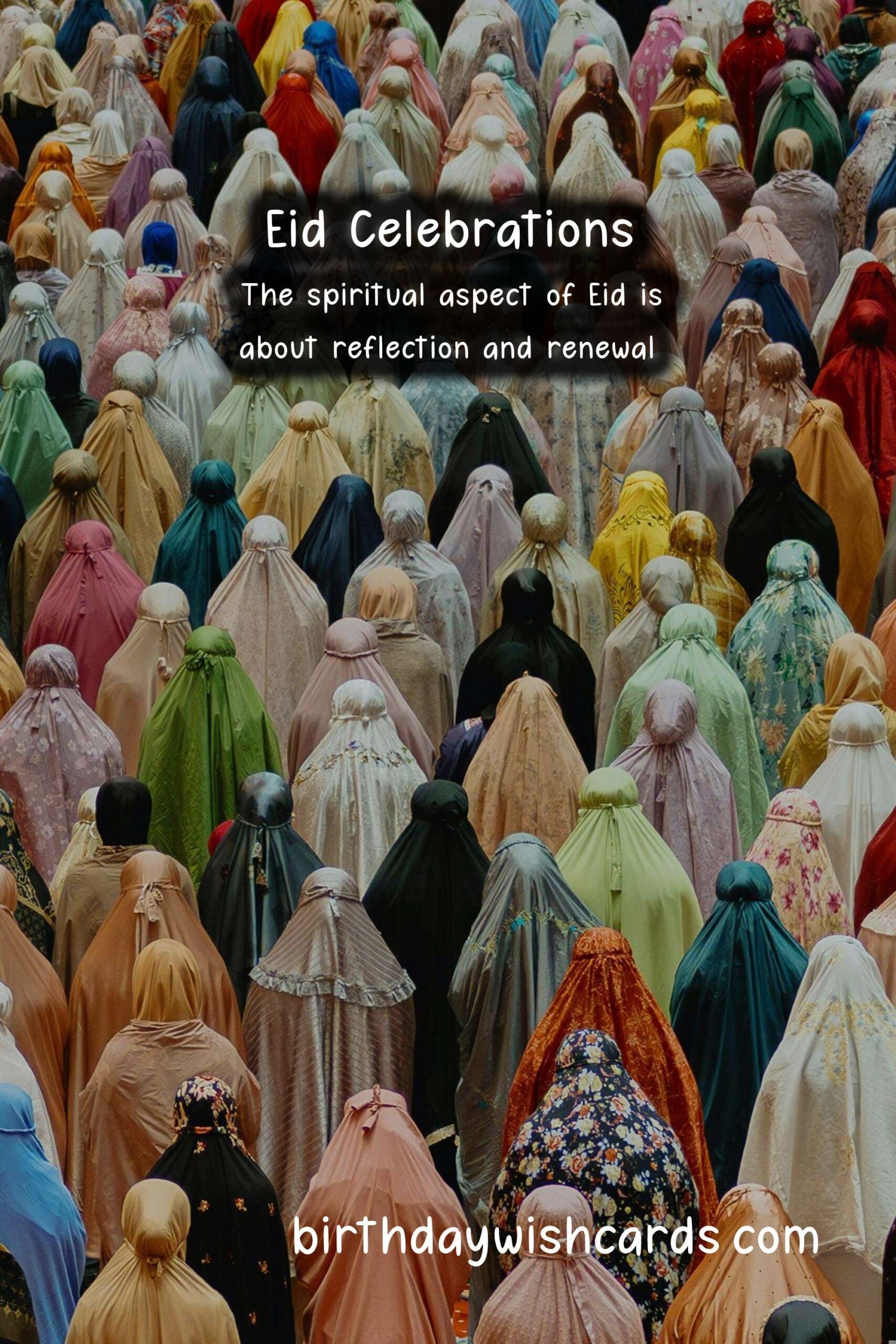

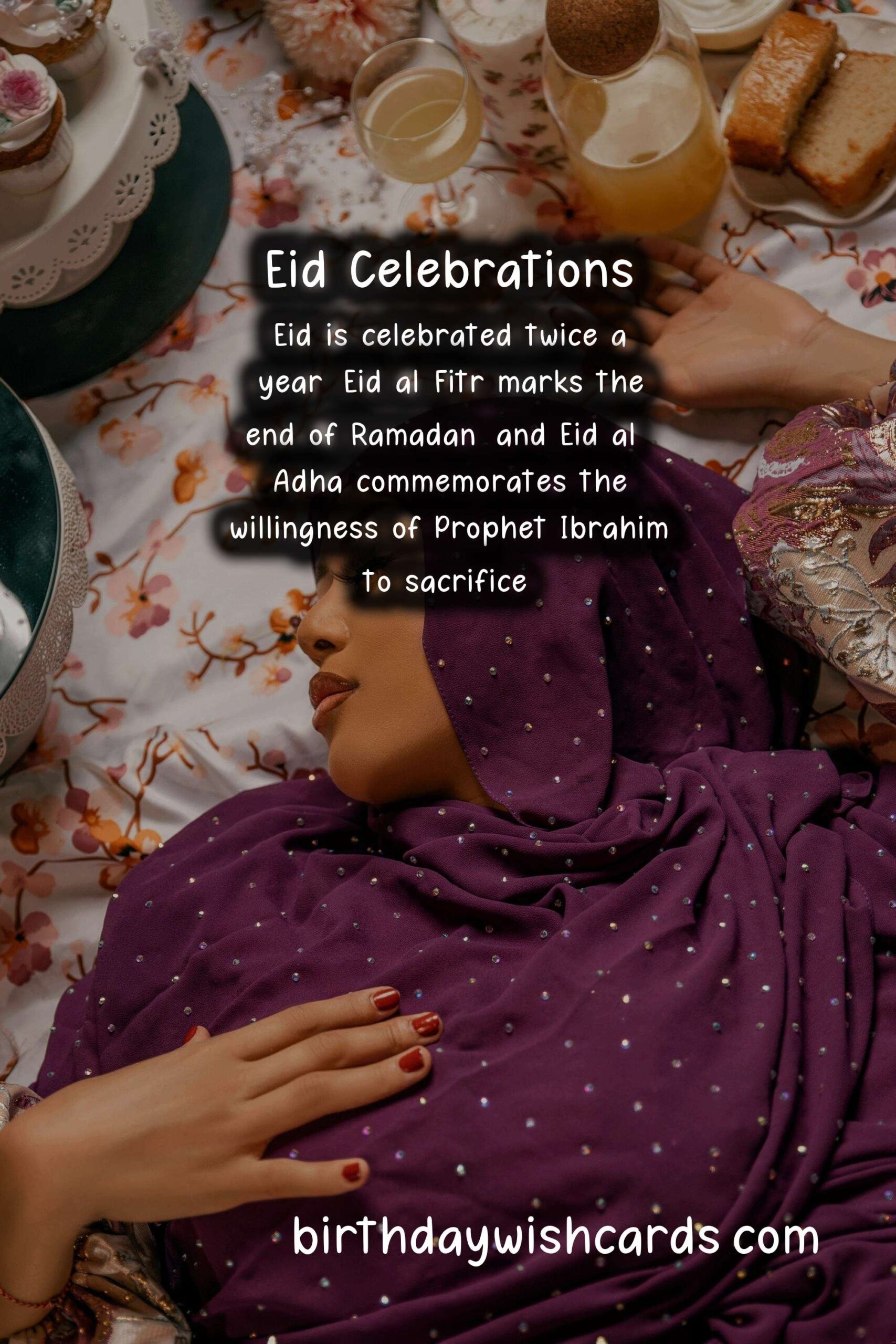
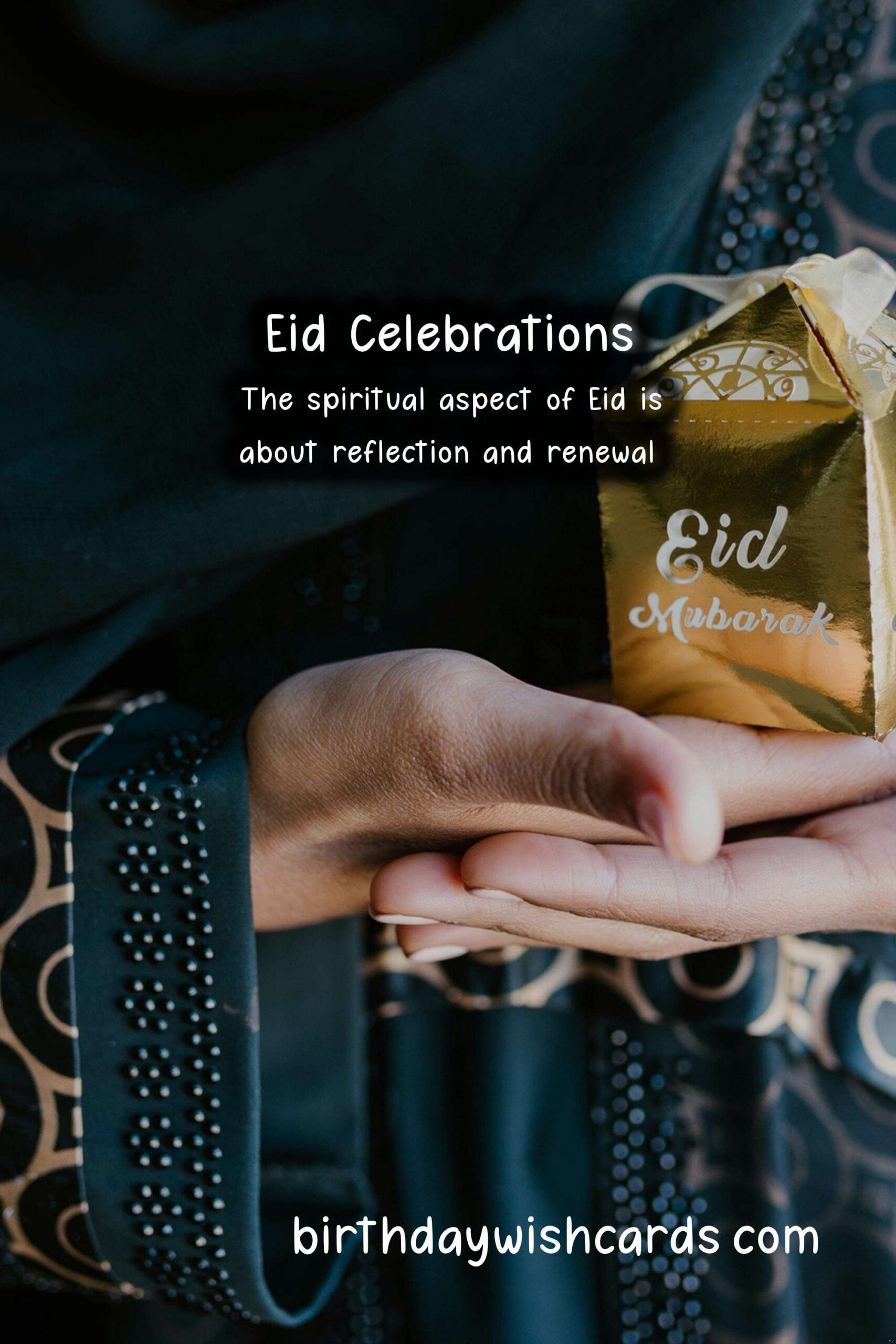
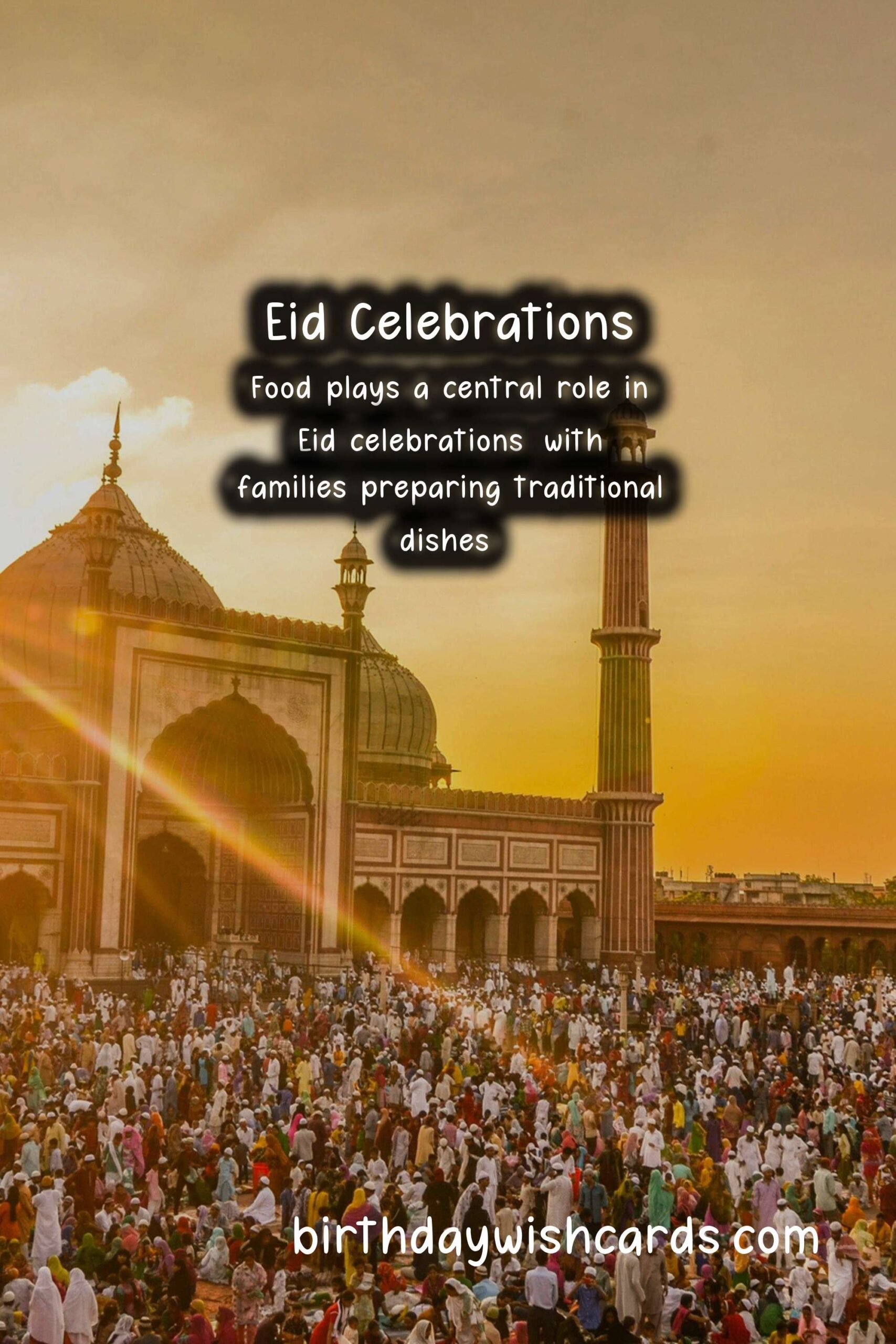
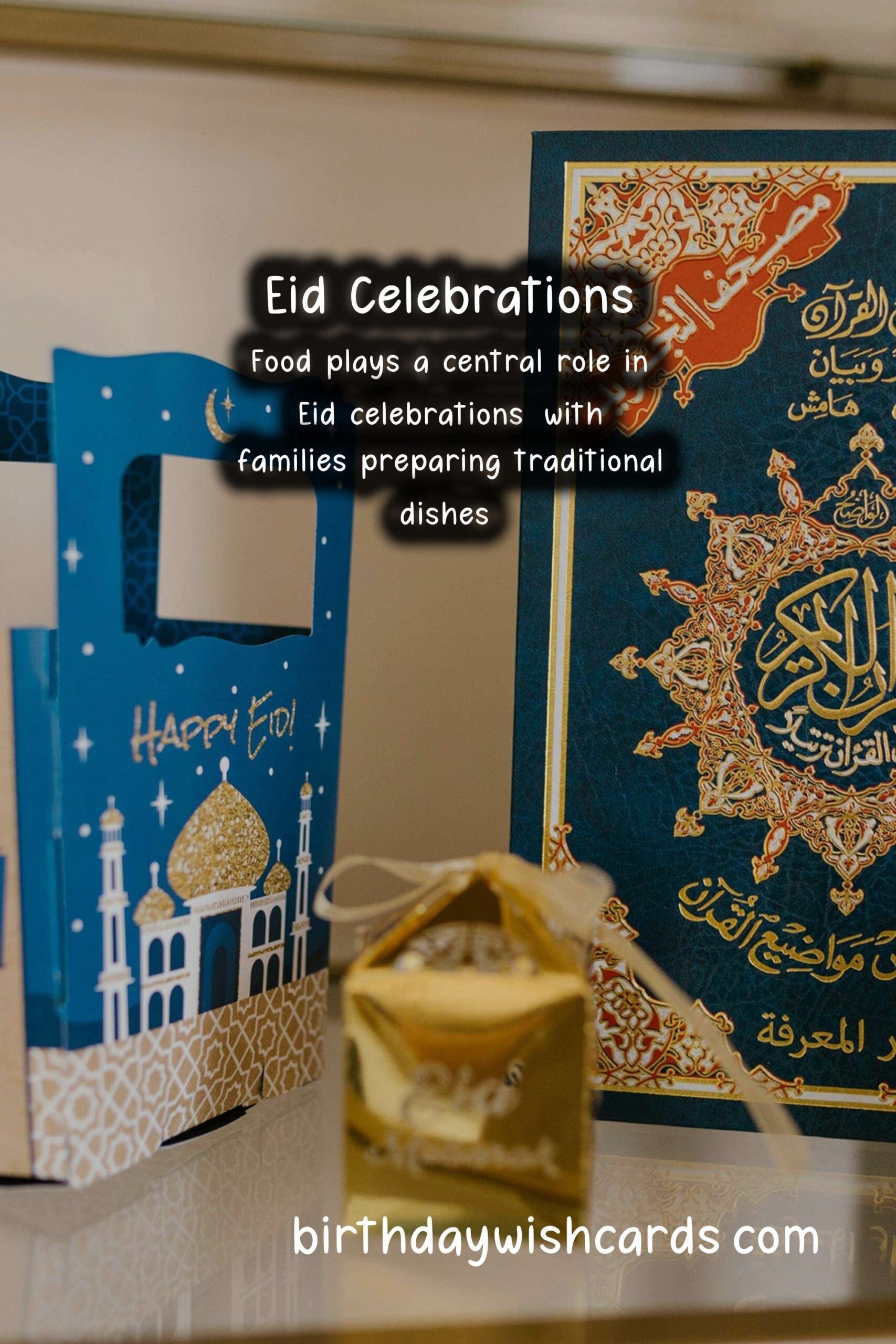
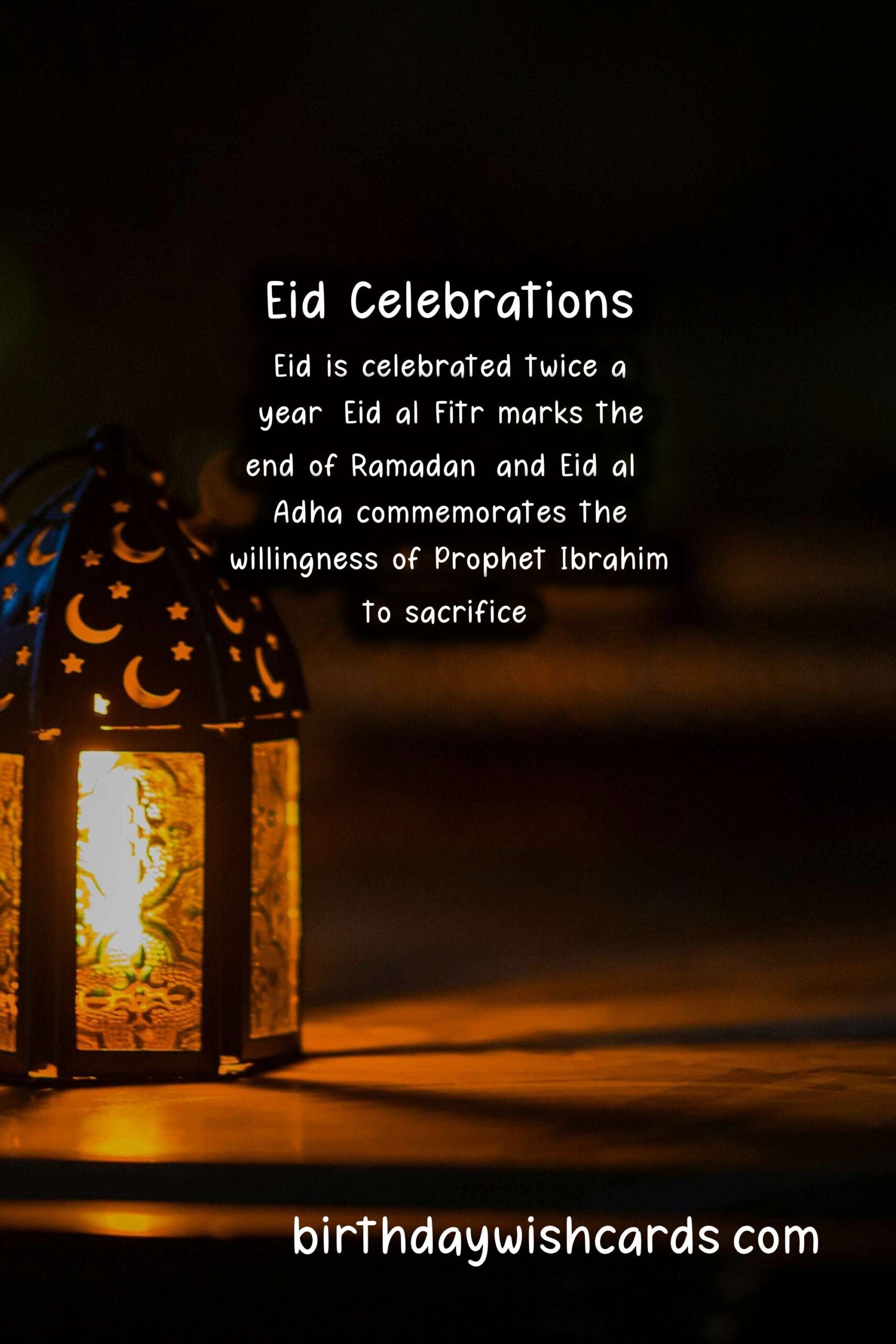

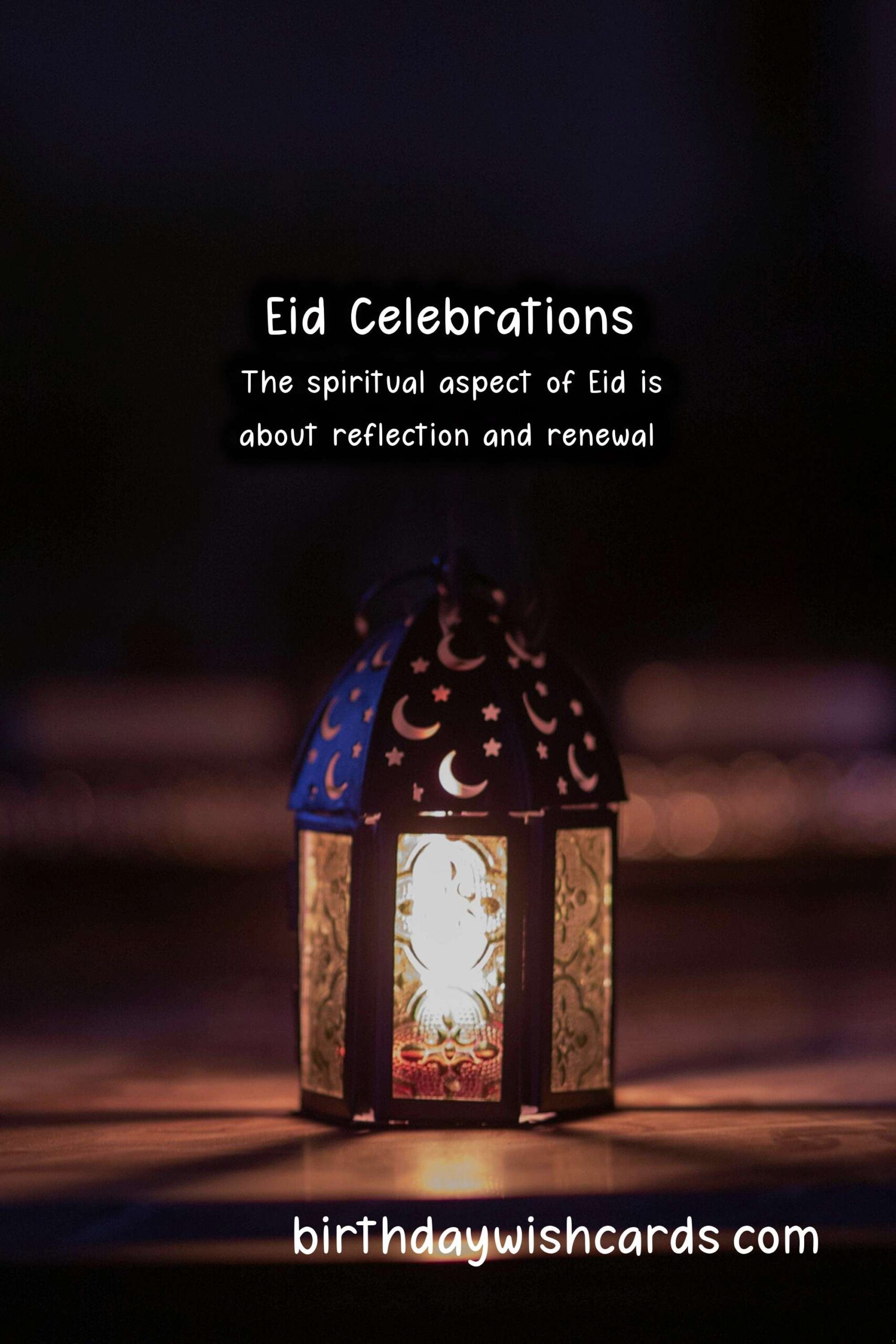

#Eid #EidAlFitr #EidAlAdha #Traditions #Customs






